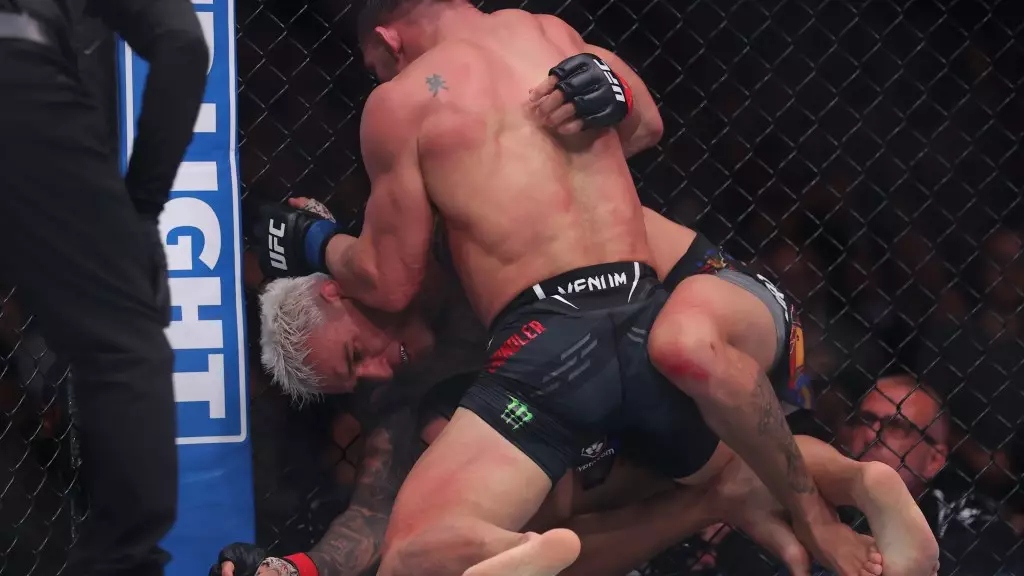In the electric atmosphere of Madison Square Garden, UFC 309 delivered a thrilling co-main event between Charles Oliveira and Michael Chandler. A fight where tactical mastery was on full display, yet marred by significant officiating concerns. Oliveira, armed with an impressive track record of 35 wins against 10 losses, dominated most of the match, showcasing his grappling prowess with five successful takedowns and nearly 15 minutes of control time. Despite this, the fight narrative shifted dramatically toward the end, raising questions about the integrity of officiating in the sport.
Dominance vs. Controversy
Although Oliveira appeared to control the fight consistently, Chandler’s resilience shone through, especially in the final moments. This is emblematic of fights in the UFC, where a fighter can be losing but still mount a formidable comeback. The late surge by Chandler was notable, as he landed a series of punches that could have turned the tide. However, Oliveira voiced serious concerns following the bout, criticizing referee Keith Peterson for seemingly overlooking repeated illegal strikes to the back of his head, which are strictly prohibited in mixed martial arts. These strikes could have legally invalidated Chandler’s comeback, prompting Oliveira’s frustration and highlighting a frustration shared by many fighters regarding officiating consistency.
The role of referees in combat sports is pivotal, acting as a safeguard for the fighters’ safety while upholding the rules that govern the match. Yet, challenges arise when perceptions of ineptitude or negligence come to light, as seen with Oliveira’s claims of not just illegal strikes but also violations regarding fence grabbing and eye pokes. In combat sports, the stakes are extraordinarily high, making every decision and action within the octagon crucial. Oliveira’s post-fight remarks emphasize the pressing need for referees to remain vigilant and responsive, as their actions can significantly influence the outcome of a fight.
Ultimately, Oliveira managed to walk away with a victory, marking a triumphant return after his previous loss to Arman Tsarukyan at UFC 300. This resilience speaks volumes about his character as a fighter. Despite the officiating issues, Oliveira kept his focus and managed to outperform Chandler for a majority of the match. In his victory speech, he expressed eagerness for a title shot, setting his sights on facing the winner of the forthcoming rematch between lightweight champion Islam Makhachev and Tsarukyan.
UFC 309 was more than just another event in the promotion’s storied history; it encapsulated the ongoing dialogue about athlete safety, the crucial role of officials, and the indomitable spirit of fighters. For Oliveira, this fight is a stepping stone toward reclaiming his position at the top of the division. Meanwhile, Chandler’s performance, albeit flawed due to unacknowledged strikes, showcases the competitive spirit that defines mixed martial arts. This event, alongside Oliveira’s comments, reiterates the importance for governing bodies to evaluate and enhance their officiating protocols to ensure fairness and protection for all competitors in the sport.

